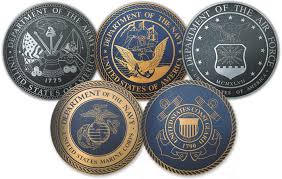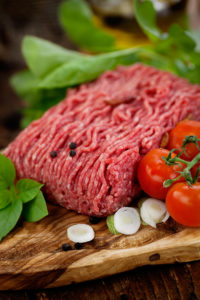I recently published a review paper with Dr. Kyle Hoedebecke examining nutritional supplement in a military setting. Many are unaware that certain nutritional supplements may be of considerable benefits to war fighters. Dr. Hoedebecke and I also had an LTE in the The Journal Of Special Operations Medicine (JSOM) on a similar topic not long ago. Below is the abstract from our recent review with link to the full paper.

Abstract
The Soldiers of America’s military endure numerous physical and mental challenges that demand strict physical fitness regimens, extreme mental agility, and a perpetual readiness to deploy at a moment’s notice. The chronicity of these stressors has the potential to dramatically reduce performance – both directly and indirectly. Because of this risk, many Soldiers turn to nutritional supplements with hopes of optimizing performance. Increasing amounts of research have demonstrated that various supplements may enhance overall physical prowess, health, and offer quicker recovery in the face of corporal or psychological extremes. Most individuals, including many medical and nutrition professionals, possess only an elementary comprehension of nutritional supplements and their effect on Soldiers in training or combat environments. Nevertheless, a grasp of these details is required for safety and optimal benefits. Various compounds have been evaluated – to include evidence within the military setting – and found to augment endurance, increase cognitive function, decrease knee pain, or offer hearing or lung protection in the face of high-energy impulses. These efficacious outcomes may serve to augment the health and longevity of these Soldiers; however, continued research is needed for efficacy and long-term safety within specific environments.
Full Paper HERE
Indexed on PubMed HERE
Will Brink is the owner of the Brinkzone Blog. Will has over 30 years experience as a respected author, columnist and consultant, to the supplement, fitness, bodybuilding, and weight loss industry and has been extensively published. Will graduated from Harvard University with a concentration in the natural sciences, and is a consultant to major supplement, dairy, and pharmaceutical companies.
His often ground breaking articles can be found in publications such as Lets Live, Muscle Media 2000, MuscleMag International, The Life Extension Magazine, Muscle n Fitness, Inside Karate, Exercise For Men Only, Body International, Power, Oxygen, Penthouse, Women’s World and The Townsend Letter For Doctors.
He’s also been published in peer reviewed journals.
Will is the author of the popular e-books, both accompanied by private members forum access , Bodybuilding Revealed & Fat Loss Revealed.
You can also buy Will’s other books on Amazon, Apple iBook, and Barnes and Noble.





Very informative article. The only complaint is the term “soldier” applies only to Army. I assume the study meant to include all branches of the armed forces.
The term soldier would apply to all branches of the military.
Grant..jeez, dude. Forest for the trees?
Was that intended for Grant?
Yes sir.
Soldier, Sailor, Airman, or Marine (I was one of them).
The article was quite clear in its application to all of the them.
And, thank you for it.
I thought it was pretty clear too.
Afternoon Will. Well at least here in the Canadian and US northeast.
I read the full paper for the military applications of these supplements which could enhance and reduce physical and mental issues of military personnel.
Magnesium and multivitamins are a definite help to soldiers on the front lines. i don’t know about Glucosamine though. Actually out of all the supplements mentioned I was wondering about protein
powder. How could manufacturers make a protein powder package for solidiers at the front line,if they’re going without food for many hours while in combat?
Just a thought. Fascinating article Will. I think you or someone in the supplement field will do have the military using supplements more to reduce physical and mental maladies,even when training.
I literally took notes on this one Will. have a good weekend.
I hope the info helps Mark!
Impressive work Will. Did I read this correctly, ” Compared with the other 2 arms of the study, the protein supplement cohort averaged 33% fewer total medical visits, 28% fewer bacterial/viral infections, 37% fewer muscle/joint problems, and 83% fewer visits due to heat exhaustion…” from just 10 grans protein (8 g carbohydrate, 10 g protein, 3 g fat)?
That’s barely 100 calories. Irregardless of what their diet was, it would seem like getting the P supp is a no brainer.
No brainer on the P is an understatement I’d say! 🙂